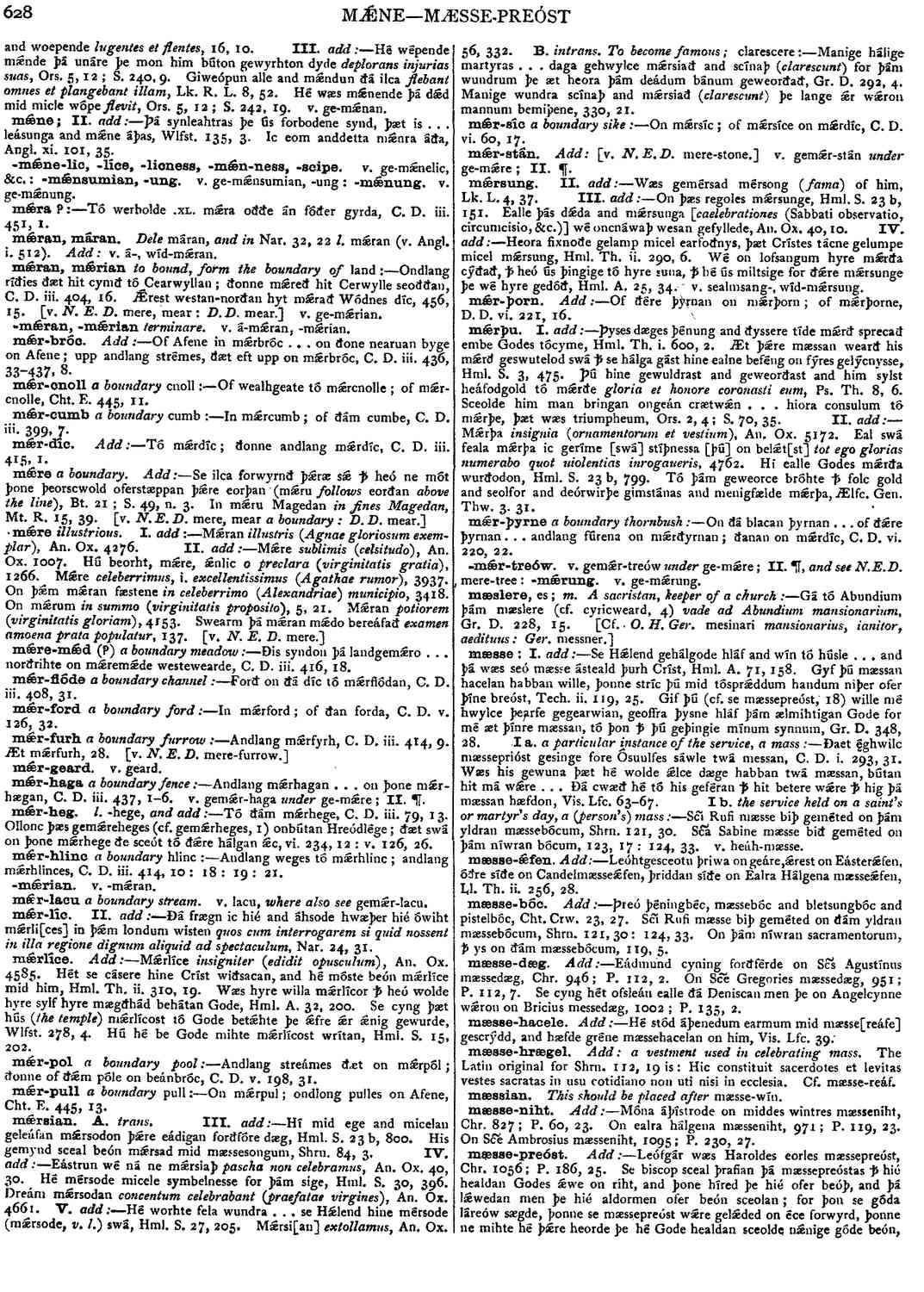mæsse
-
Se Hǽlend gehálgode hláf and wín tó húsle . . . and þá wæs seó mæsse ásteald þurh Críst,
- Hml. A. 71, 158.
-
Gyf þú mæssan hacelan habban wille, þonne stríc þú mid tósprǽddum handum niþer ofer þíne breóst,
- Tech. ii. 119, 25.
-
Gif þú (cf. se mæssepreóst, 18) wille mé hwylce þearfe gegearwian, geoffra þysne hláf þám ælmihtigan Gode for mé æt þínre mæssan. tó þon ꝥ þú geþingie mínum synnum. Gr. D. 348, 28. I a.
a particular instance of the service, a mass
:-- Ðaet ę́ghwilc mæsseprióst gesinge fore Ósunlfes sáwle twá messan,- C. D. i. 293, 31.
-
Wæs his gewuna þæt hé wolde ǽlce dæge habban twá mæssan, bútan hit má wǽre . . . Ðá cwæð hé tó his geféran ꝥ hit betere wǽre ꝥ hig þá mæssan hæfdon, Vis. Lfc. 63-67. I b.
the service held on a saint's or martyr's day, a (person's) mass
:-- Sćĭ Rufi mæsse biþ geméted on þám yldran mæssebócum,- Shrn. 121, 30.
-
Sśă Sabine mæsse bið geméted on þám níwran bócum,
- 123, 17 : 124, 33.
Bosworth, Joseph. “mæsse.” In An Anglo-Saxon Dictionary Online, edited by Thomas Northcote Toller, Christ Sean, and Ondřej Tichy. Prague: Faculty of Arts, Charles University, 2014. https://bosworthtoller.com/55012.
Checked: 0